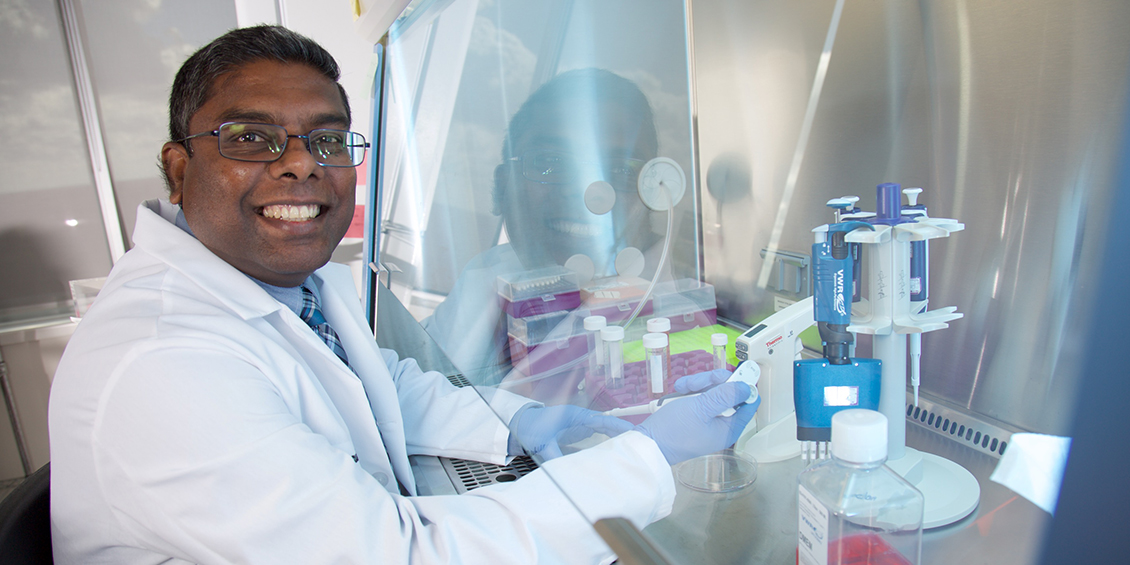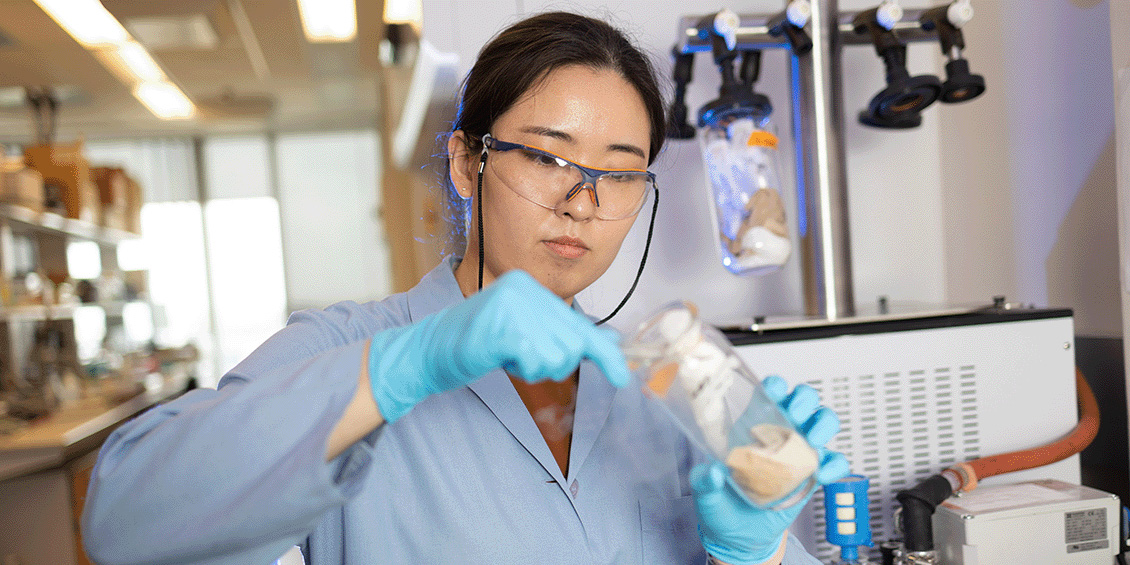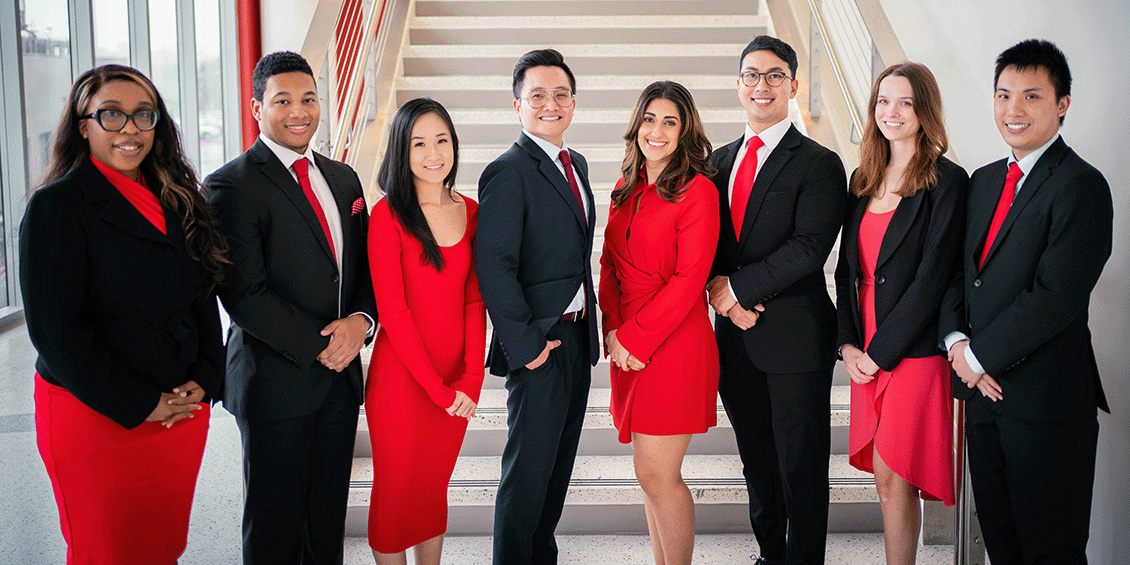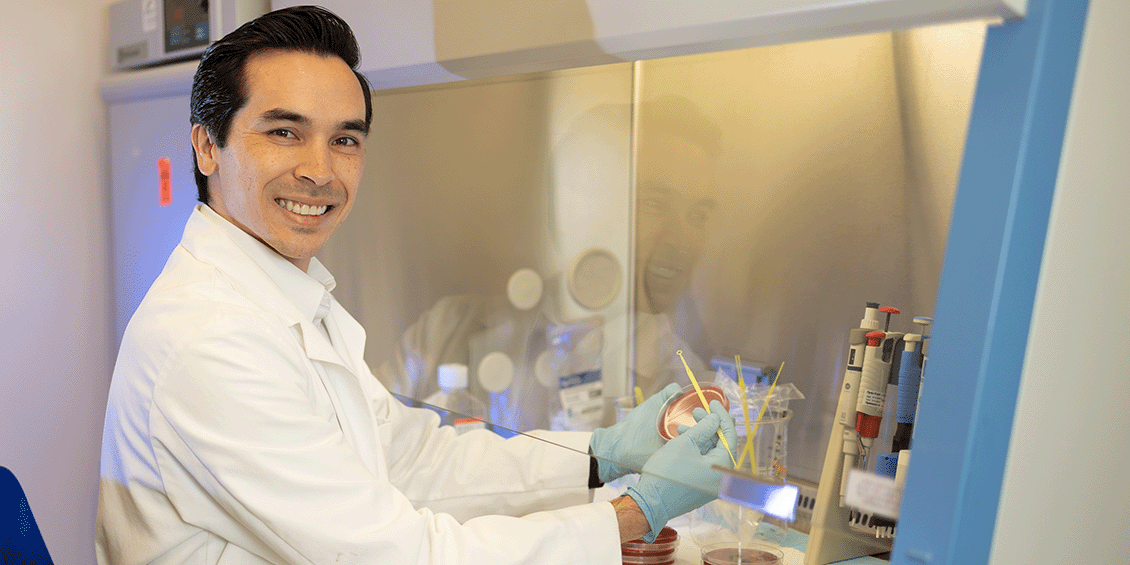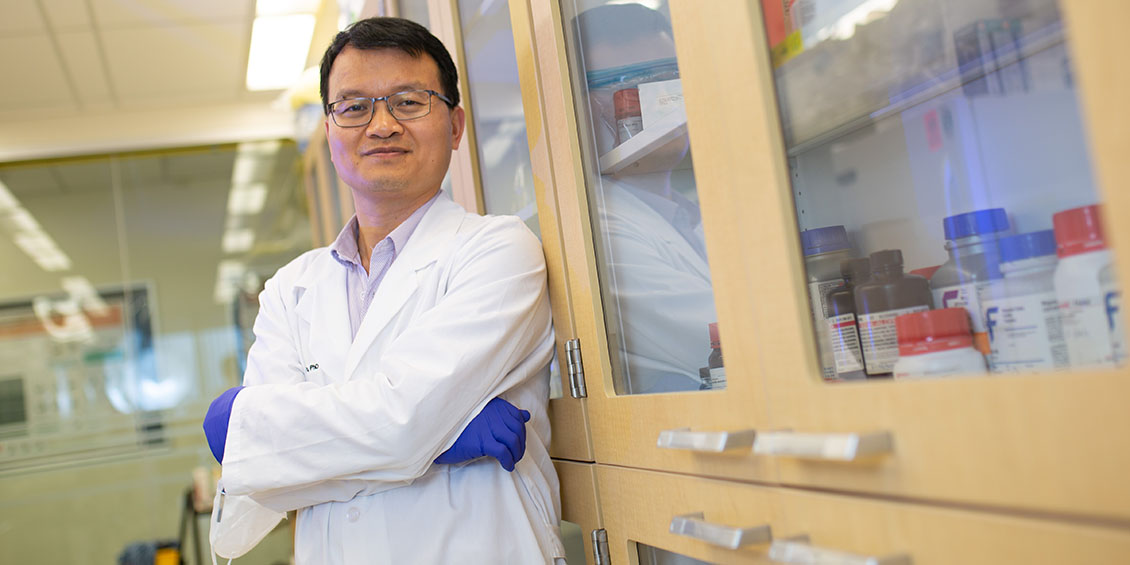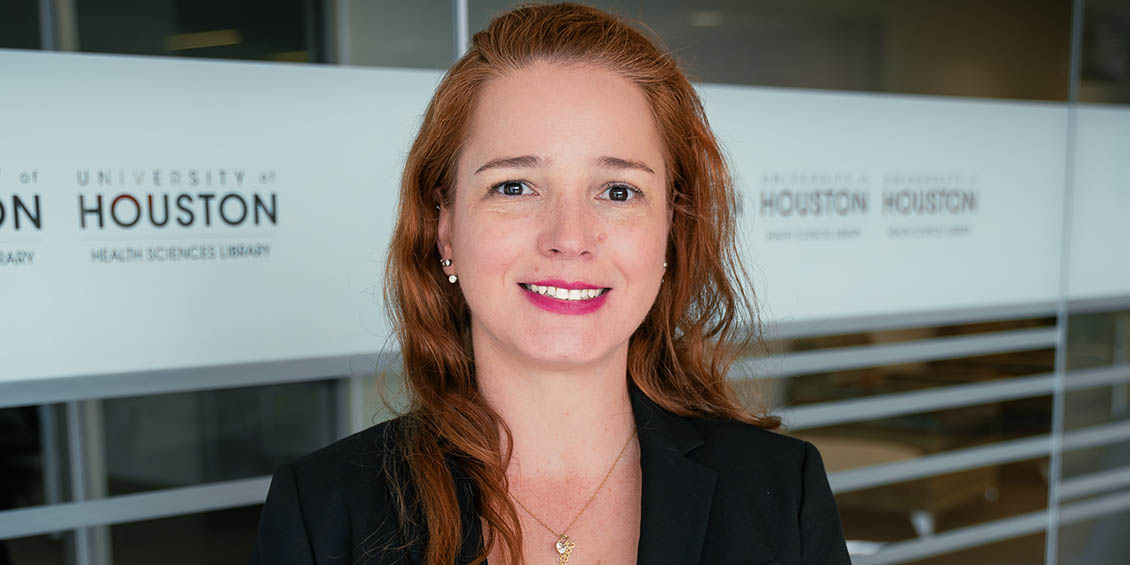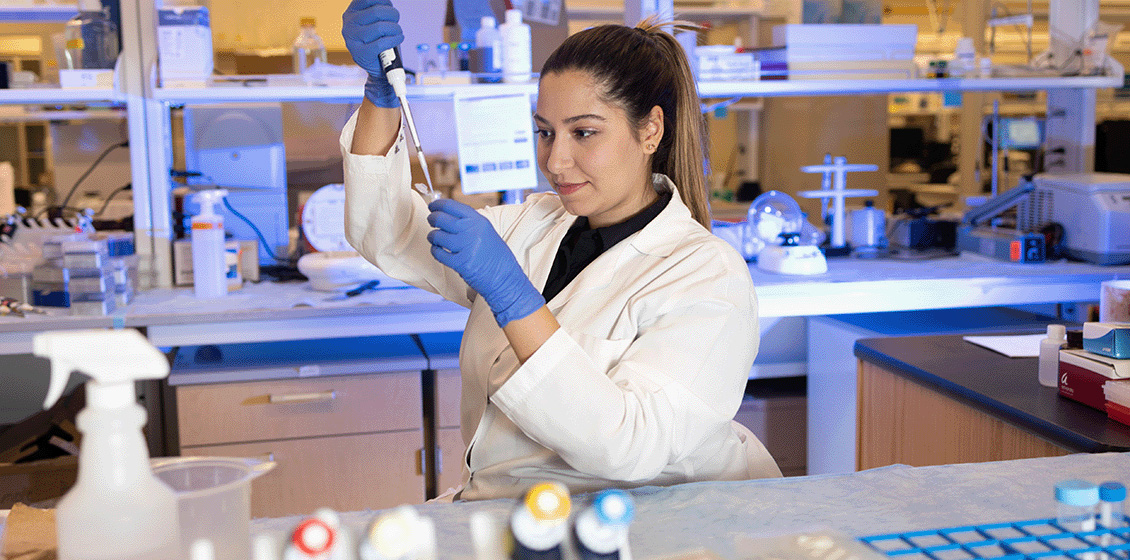
Graduate Programs
Supported by award-winning faculty mentors and cutting-edge research technology, the
University of Houston College of Pharmacy graduate programs offer students the opportunity
to engage in impactful research, contribute to respected publications, present at
national and international conferences, and develop the knowledge and skills for successful
careers in academia, industry, government and health care organizations.
Degree options include a Ph.D. in Pharmaceutical Sciences with Concentrations in Medicinal Chemistry, Pharmaceutics, Pharmacology, and Pharmaceutical Health Outcomes and Policy; an M.S. in Pharmacy Leadership and Administration combined with PGY1-PGY2 health-system pharmacy leadership and administration program; a dual Ph.D./M.A. in Applied Economics degree; and a Pharm.D. + Ph.D. consecutive program.
Degree options include a Ph.D. in Pharmaceutical Sciences with Concentrations in Medicinal Chemistry, Pharmaceutics, Pharmacology, and Pharmaceutical Health Outcomes and Policy; an M.S. in Pharmacy Leadership and Administration combined with PGY1-PGY2 health-system pharmacy leadership and administration program; a dual Ph.D./M.A. in Applied Economics degree; and a Pharm.D. + Ph.D. consecutive program.
At A Glance
- #25NIH research funding among pharmacy colleges (AACP, FY2024)
- #8*Ph.D.s conferred among pharmacy colleges (*tie; AACP, 2023)
- 4.6Publications per graduating PhD students
- 30All-source research funding among pharmacy colleges (AACP, FY2024)
- 31Top Colleges of Pharmacy for 2021 (US News & World Report)
Research
UHCOP faculty members have received national recognition for their research and service. Recent faculty publications have appeared in such journals as Nature and Science, as well as major pharmacological, pharmaceutical and physiological journals. College faculty research and program initiatives include cardiovascular studies, nanoparticle drug delivery systems, neuropharmacology, signal transduction mechanisms, aging and exercise, infectious disease protocols, and patient counseling, and opioid misuse prevention strategies.
